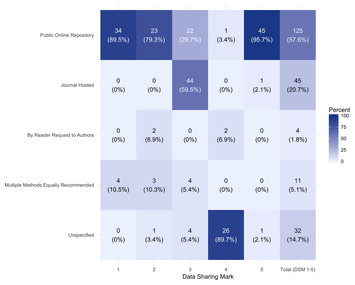What Might Peer Review Look Like in 2030?
A report based on the sessions at the SpotOn London conference held at Wellcome Collection Conference centre in November 2016.
publications
Send us a link
A report based on the sessions at the SpotOn London conference held at Wellcome Collection Conference centre in November 2016.
Study suggesting that journal-specific submission guidelines may encourage desirable changes in authors’ practices.
For years, there was no overview of what the total amount being paid for journal subscriptions was per institute or on a national level.

Explore the universities with the highest percentage of international students.

Urgent consideration needs to be given to the “careful stewardship” needed over the next ten years to ensure that the dividends from machine learning – the form of artificial intelligence that allows machines to learn from data.
The pervasiveness and quality of data sharing policies in the biomedical literature.

3 basic issues inherent in using tweets for research evaluation: whose tweets can be used to assess a paper, what objects can be evaluated, and how to score the paper according to each tweet.

How open source methods of working could be applied to the discovery and development of new medicines.
Analysis reveals that female researchers are over-represented on the social-media site and that mathematicians and life scientists are less likely to use it.

Evaluating the impact of the Moore Foundation Open Access new policy.
Significance thresholds and the crisis of unreplicable research
The science and engineering workforce has aged rapidly, both absolutely and relative to the workforce, which is a concern if the large number of older scientists crowds out younger scientists.
A webinar on how to access and engage with content and the importance of open access to scholarly research communication.
A matched-control analysis of papers containing problematic image duplications.
A new Council of Graduate Schools report that highlights the lack of career development support at many institutions also offers some useful resources.

Consider biomedical preclinical and clinical research, in which the trusted service involves the exchange of papers, data, software, reagents, and so on.
A systematic approach to identifying and analyzing scientists on Twitter.
Using public information about the identities of 9000 editors and 43000 reviewers from the Frontiers series of journals, we show that women are underrepresented in the peer-review process.
Sci-Hub is used by different populations and for a number of different reasons and that there is still a lack of access to the published scientific record.
Elsevier and CWTS benchmark report on researchers perspectives on data sharing and data sharing practices
The political left and right share an interest in science in general, but not science in particular. the political left and right share an interest in science in general, but not science in particular.
A new report published today by Elsevier and CWTS provides a benchmark overview of data sharing perceptions and practices among researchers.
Springer Nature has developed a standardised, common framework for the research data policies of all its journals.
A new policy paper by LERU on why and how societal impact has always been, is and will remain, a core task of universities.
A review showing that some metrics in widespread use cannot be used as reliable indicators research quality.
The revised Code addresses recent and emerging challenges emanating from technological developments, open science, citizen science and social media, among other areas.
Analysis of research performance through a gender lens across 20 years, 12 geographies, and 27 subject areas.
Research policy observers are increasingly concerned about the potential impact of current academic working conditions on mental health, particularly in PhD students. One in two PhD students experiences psychological distress; one in three is at risk of a common psychiatric disorder.